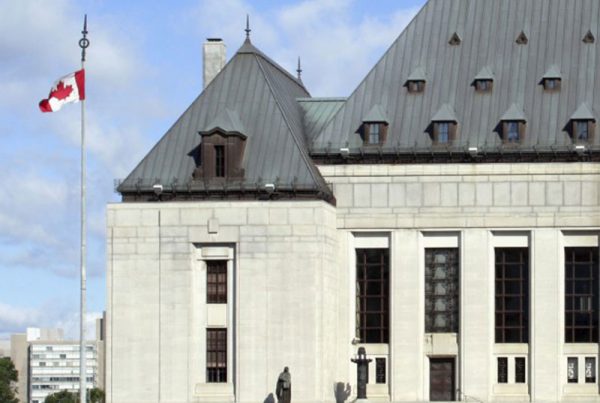On July 24, 2025 the Supreme Court of Canada (SCC) dismissed an appeal that challenged the constitutionality of two offences related to sex work in the Criminal Code. The appellants in Kloubakov are third parties (non-sex workers) who challenged the prohibitions on procuring and materially benefiting from sexual services, arguing that these violated sex workers’ rights to life, liberty and security of the person (s. 7 of the Charter).
These provisions form part of Parliament’s response to the SCC’s landmark decision in Canada v Bedford. In the 2013 Bedford ruling, the SCC found that previous Criminal Code provisions prohibiting sex workers from accessing measures to protect their safety and security were unconstitutional as they exposed sex workers to dangerous conditions and put them at risk of violence and other harm.
The appellants in Kloubakov argued that the impugned Criminal Code provisions failed to substantively and rigorously address the harms identified in Bedford. However, the SCC disagreed, ruling that, when interpreted correctly, both offences allow sex workers, or individuals they hire, to implement the safety measures recommended in Bedford. These measures include using fixed indoor locations, hiring third parties to provide services, working with other sex workers and sharing information about safe working conditions.
While this statutory interpretation clarifies some of the ways in which sex workers can protect their safety and security, it only partially addresses the many concerns raised in connection with the new federal regime governing sex work. For instance, the SCC declined to rule on whether sex workers are at greater risk of harm due to a lack of access to security services offered by ‘commercial enterprises’, such as commercial escort agencies, as opposed to hiring security services themselves or through a cooperative arrangement with other sex workers.
The CCLA intervened in Kloubakov to argue that the safety and security of sex workers must be construed as a bedrock objective of the new Criminal Code provisions in light of the Bedford case. As the court’s analysis of sex workers’ Charter-protected rights to life, liberty and security of the person required it to compare the impact of the new provisions against their intended purposes, how these purposes were framed was crucial to the s. 7 analysis.
It is disappointing that the SCC did not prioritise the safety and security objective in its analysis, instead treating it as one priority among others. It is also disappointing that the SCC failed to engage meaningfully with evidence relating to the lived experiences of sex workers, including by denying groups representing sex workers permission to intervene. This debate is not over yet, as some of the issues that the SCC declined to rule on are raised squarely in the Canadian Alliance for Sex Work Law Reform v. Canada case. The matter is currently pending before the Court of Appeal for Ontario.
CCLA is grateful for the excellent pro bono representation of Zain Naqi and Annecy Pang from Lax O’Sullivan Lisus Gottlieb LLP in this case.
About the Canadian Civil Liberties Association
The CCLA is an independent, non-profit organization with supporters from across the country. Founded in 1964, the CCLA is a national human rights organization committed to defending the rights, dignity, safety, and freedoms of all people in Canada.
For the Media
For further comments, please contact us at media@ccla.org.





